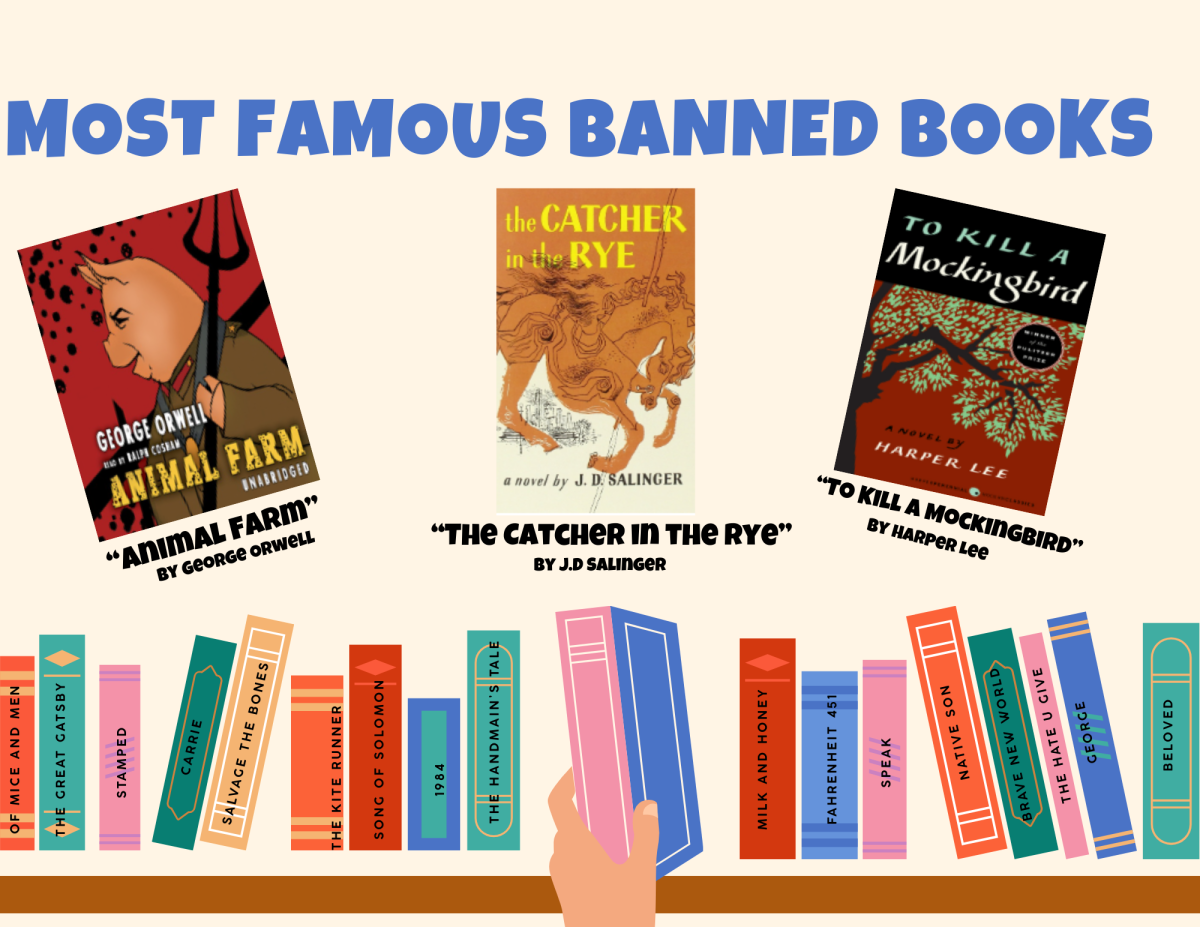Since 1990, the American Library Association (ALA) has been keeping an eye on the attempts to remove or restrict materials from our schools and libraries. Starting in 2020, when the use of technology was increased and people could access books and other people’s opinions and reviews about these books, the restrictions also increased. As of 2024, over 10,000 books have either been challenged or banned, nearly tripling from 2023, where 3,362 were banned. Some of the most common books that have been challenged include, The Adventures of Huckleberry Finn By Mark Twain, Bridge to Tabitha By Katerine Paterson, and The Catcher in The Rye By J.D. Sallinger, a book that is commonly used in LPS’s school curriculum.
While challenging books seems like an involved process, many challenges happen at public libraries and schools. Most of the time, a parent or the member of the community wants to prevent the children from reading about the content that is in the books. The content of the books spark the tough conversations that initiate the book banning process. This can happen when a book includes violence or negativity, political bias, age inappropriate, sexual situations or dialogue, and/or racial issues. From there, the person or group that initiated the challenge must read the whole book, fill out a challenge form, and then explain how, why, and where the offensive action or wording took place. Finally, the book will be taken to a hearing, and decided whether it should be removed from public schools or libraries.
Even though many books don’t get to the point of being removed, let alone a hearing due to a person not meeting all of the necessary requirements of challenging a book, many schools have been faced with a tough conversation about a book a class is reading. Even though LPS has not been faced with too many challenges, schools around the country have had to remove books from their curriculum due to their explicit content.
“I hate to see any novel of merit be removed as an option for teachers,” English teacher Eric Sayre said. “I have always viewed books that have challenging and/or controversial content as learning opportunities. The increased challenge of school curricula nationwide is deeply troubling, particularly when one looks at the books/topics most frequently challenged.”
As not every book is meant to appeal to everyone’s liking, I believe that everyone should have an equal opportunity, as well as these books being accessible to everyone. Many of these challenges come from people that haven’t actually read the book, but rather have heard about the book through word of mouth, or saw a negative review about it on social media. With the increased use of social media, people’s opinions are skewed due to the bias that many people see online, without taking the chance to read and interpret the book for themselves. Instead of creating an incomplete opinion on the book, people who are concerned about the content of a book, should take some time to research and explore the material before making a final assumption about the book.
“I think the term “banned books” raises a lot of eyebrows,” Lincoln East librarian Abby Lott said. “Keeping “banned” books in a collection allows patrons to learn about multiple perspectives. On our shelves we should be able to see ourselves reflected as well as explore a completely different world. The best books make us feel heard, and learn about others.”
Even though parents are allowed to decide what material their children are exposed to, parents don’t get to restrict what is available for other people. While these hard topics can be controversial, authors will not stop writing about them as they try to represent a diverse set of experiences. Books are wonderful opportunities to grow, as they help people create a better sense of the world around them. So stop judging a book by its cover, and take a look inside the book before taking away everyone’s opportunity to learn and grow from literature.



